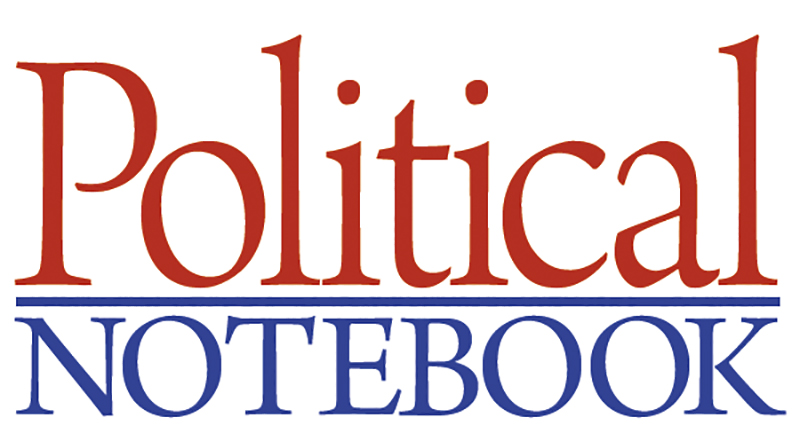Political notebook: Sen. Carl Ford says state needs ‘full bore reopening’
Published 12:01 am Monday, May 25, 2020
Sen. Carl Ford can describe Gov. Roy Cooper’s “modest” Phase 2 reopening with a single sentence.
“It’s better than nothing,” Ford said.
Ford has been a vocal advocate for the state allowing businesses shut down by COVID-19 executive orders to reopen. Cooper’s announcement of Phase 2 last week loosened some more rules for some establishments while preventing others from reopening. Starting Friday, restaurants, barber shops and salons could welcome customers. Cooper said bars, gyms and indoor entertainment venues have to remain closed until at least June 26.
But Ford, a China Grove Republican whose Senate district includes Rowan and Stanly counties, says the state needs “to go full-bore reopening.”
Rep. Harry Warren, R-76, said the state could have been broader in relaxing rules, but time will tell. Reopening the state is the right thing to do, he said.
Rep. Larry Pittman, R-83, said it is “way past time” to reopen North Carolina.
“Phase 2 from Gov. Cooper is just another slap in the face to freedom loving, hard-working citizens,” Pittman said. “It is too little, and too long in coming. People are hurting all across our state because of Gov. Cooper’s draconian policies.”
Pittman said Cooper tries to blame the economic tragedy on the virus, but “it is not the virus that has caused one single reduction in force or closing of a business, but Cooper himself.”
Rep. Wayne Sasser, R-67, said it is unfortunate that businesses like gyms were to be included in the second phase but then told they wouldn’t be on Wednesday. Sasser said he has an issue with designating businesses as essential and non-essential.
“I just have a real problem designating what business is essential and what business is not essential,” Sasser said. “If that business feeds your family and provides you a livelihood, in my opinion, it’s essential.”
Sasser said the nation as a whole needs to figure out how to protect vulnerable people.
“Everybody in assisted living or a nursing home is vulnerable,” Sasser said. “Let’s protect the really vulnerable. … Hopefully, we’ve learned a lot with our nursing homes, but we’ve made a lot of mistakes with particular industries.”
Warren said he would like to see more resources for places that have been proven to be hot spots for infection such as congregate facilities.
“The main thing is we do repress the rate of infection as much as we can going forward,” Warren said. “To a certain degree, people have a personal responsibility for taking precautions themselves.”
Ford is a supporter of Reopen NC protests. But he’s received criticism for his stance, including encouraging large crowds of people to protest business shutdowns when executive orders only allowed groups of 10 or fewer to gather.
“People keep telling me I’m not an expert, and they’re right,” Ford said. “They’re 100% right. I’m not an expert. When I started talking about businesses and them reopening, they said all I care about the almighty dollar and that I didn’t care about anybody’s health.”
Ford said medical professionals have contacted him about a potential an increase in suicides, which is a reason he wants to reopen now.
“All of it is sad,” he said. “Any death is sad. We keep saying that. We have to keep saying that. I think we’re going to have a lot more problems when you have business owners saying business is shut down and we don’t know if we’re going to reopen.”
Legislators file bill modifying the absentee by-mail voting process
Based on some North Carolina State Board of Elections recommendations, several state representatives filed a bill to change the absentee by-mail voting process this year.
The Elections 2020 bill, House Bill 1069, requires returned absentee ballots to be accepted and processed if the voter marked the ballot in the presence of at least one person who is at least 18 years old and is not disqualified under state law — down from the current number of two. It also allows for a completed written request for absentee ballots to be delivered in person by mail, email or fax to the county board by the voter or an authorized person.
“We appreciate that the General Assembly has taken our recommendations to heart and put forward a bill that ensures accessible, safe and secure elections in 2020,” said Karen Brinson Bell, executive director of the State Board of Elections. “This is a positive step forward for North Carolina voters. We look forward to continuing to work with state lawmakers as this bill moves through the legislative process.”
The state board also recommended ensuring an adequate number of poll workers are available to work at early voting sites and Election Day polling places as well as providing funding to help cover costs associated with necessary changes in elections processes.
Cooper requests equitable funding for minority-owned businesses in COVID-19 emergency aid
Gov. Roy Cooper sent a letter to the leaders of the Golden L.E.A.F. Foundation encouraging them to ensure women- and minority-owned businesses receive an equitable portion of recently approved COVID-19 relief funding.
Women- and minority-owned businesses account for approximately half of all businesses in the state.
“Diverse businesses are engines for our economy, and we need to encourage their continued growth and development as we administer this much needed aid,” Cooper wrote. “Given the disproportionate impact this pandemic has had on minority communities, it is more vital than ever for us to ensure that all North Carolina businesses have equal access to these funds.”
The Golden L.E.A.F. Foundation is managing the distribution of $125 million in loans for businesses that are struggling as a result of COVID-19 that was included in the recently passed 2020 COVID-19 Recovery Act. The law allocating that funding states that historically underutilized small businesses benefit from equitable distribution of relief funding.



